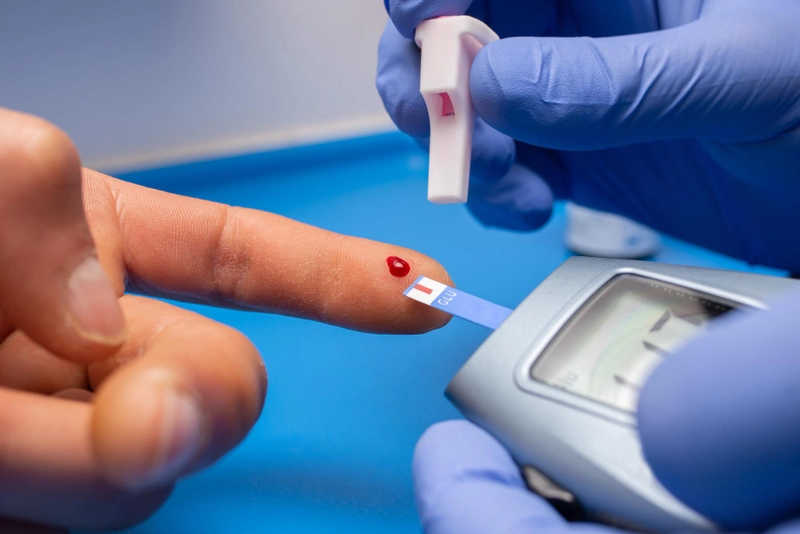- Published on: Dec 30, 2024
- 2 minute read
- By: SecondMedic Expert
Gastroesophageal Reflux Disease (GERD) Treatments
Gastroesophageal Reflux Disease (GERD) is a common yet disruptive condition that affects millions globally. It occurs when stomach acid frequently flows back into the oesophagus, leading to symptoms such as heartburn, regurgitation, and discomfort. Effective treatment can help alleviate these symptoms and improve quality of life. This guide explores various treatments, from conventional medications to natural remedies for acid reflux.
Understanding GERD and Its Causes
GERD arises due to a weak lower oesophagal sphincter (LES), which fails to prevent stomach acid from travelling upward. Common triggers include:
-
Foods that cause acid reflux: Spicy, fatty, and acidic foods, caffeine, and alcohol.
-
Obesity, pregnancy, and smoking.
-
Certain medications that relax the LES.
Medical Treatments for GERD
Acid Reflux Disease Medicine
Medication is often the first line of treatment for GERD. Here are the commonly prescribed options:
-
Antacids: These provide quick relief by neutralizing stomach acid. Examples include calcium carbonate and magnesium hydroxide.
-
H2 Blockers: Medicines like ranitidine and famotidine reduce acid production and are available over the counter.
-
Proton Pump Inhibitors (PPIs): Drugs such as omeprazole and esomeprazole are effective for long-term GERD management, reducing acid production significantly.
-
Prokinetics: These improve the motility of the digestive system and help clear stomach contents faster.
Medicine for Gastroesophageal Reflux Disease
Prescription-strength GERD medications may be necessary for severe cases. Your doctor might recommend combining PPIs with prokinetics or surgical intervention if medication alone does not suffice.
Gastroesophageal Reflux Disease Self-Care
Lifestyle adjustments play a crucial role in managing GERD. Here are practical self-care tips:
-
Modify Eating Habits:
-
Avoid overeating and consume smaller meals.
-
Steer clear of foods that cause acid reflux, such as chocolate, citrus, and tomatoes.
-
-
Weight Management:
-
Maintain a healthy weight to reduce abdominal pressure on the LES.
-
-
Sleep Adjustments:
-
Learn how to reduce acid reflux at night by elevating your head while sleeping and avoiding meals two hours before bedtime.
-
-
Quit Smoking and Limit Alcohol:
-
Both habits can weaken the LES and exacerbate symptoms.
-
Natural Remedies for Acid Reflux
Many individuals seek alternative treatments to avoid long-term medication use. Here are some effective natural remedies for acid reflux:
-
Ginger: Known for its anti-inflammatory properties, ginger can help soothe the stomach.
-
Aloe Vera Juice: Helps reduce irritation in the oesophagus.
-
Chewing Gum: Stimulates saliva production, which can neutralize stomach acid.
-
Apple Cider Vinegar: Diluted with water, it may balance stomach acidity.
Foods That Cause Acid Reflux: What to Avoid
Dietary choices have a profound impact on GERD management. The following foods are known to trigger acid reflux:
-
Spicy dishes
-
Fried and fatty foods
-
Carbonated beverages
-
Onions and garlic
-
Chocolate and peppermint
Instead, focus on GERD-friendly foods such as oatmeal, bananas, melons, and lean proteins.
Gastroesophageal Reflux Disease Homeopathic Medicine
For those interested in holistic approaches, gastroesophageal reflux disease homoeopathic medicine can be an option. Remedies such as Nux Vomica and Carbo Veg are commonly used to manage symptoms. However, consult a qualified homoeopath for a personalized treatment plan.
Advanced Treatments: Surgical Options
For chronic GERD that does not respond to medication or lifestyle changes, surgery may be considered. Common procedures include:
-
Fundoplication: Tightening the LES to prevent acid reflux.
-
LINX Device: A ring of magnetic beads is placed around the LES to strengthen it.
Importance of Regular Medical Consultation
While over-the-counter medications and self-care can manage mild GERD, persistent symptoms warrant medical attention. Untreated GERD can lead to complications such as esophagitis, Barrett's esophagus, or even esophageal cancer.
Embrace a Healthier Future
Managing GERD requires a comprehensive approach, combining medicine for gastroesophageal reflux disease, lifestyle changes, and possibly natural remedies for acid reflux. Second Medic’s healthcare professionals can guide you through tailored treatment plans to help you live symptom-free. Book a consultation today and take the first step toward better digestive health.
Read FAQs
A. The most effective medications for GERD include antacids for quick relief, H2 blockers to reduce acid production, and proton pump inhibitors (PPIs) for long-term management. Prescription-strength medicines may be recommended for severe cases.
A. Yes, natural remedies like ginger, aloe vera juice, chewing gum, and diluted apple cider vinegar can help manage acid reflux symptoms. However, these remedies may work best alongside lifestyle changes and medical treatments.
A. To reduce acid reflux at night, avoid eating two hours before bedtime, elevate your head while sleeping, and avoid trigger foods like spicy and fatty dishes. Lifestyle changes can significantly improve nighttime symptoms.
Our Services
Request A Callback
Recent Posts
Lipid Profile Test – Normal Range and Risks
Jul 12,2025
How to Prevent Food Poisoning in Monsoon
Jul 10,2025










